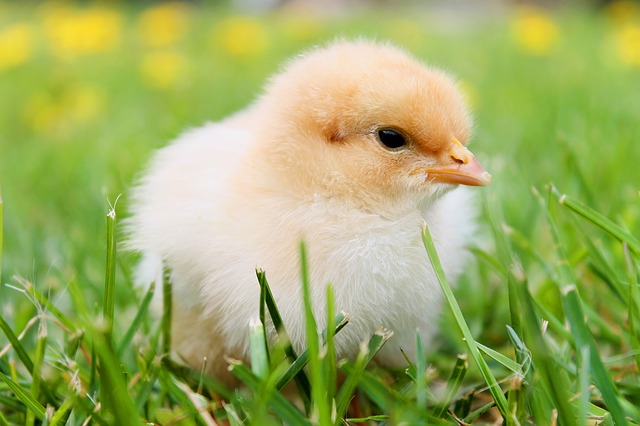
[monetize id=”1″]
Questions and Answers
I am graduate in Mech Engg and currently working for a heavy industry…I want to get myself involved in sustainable agriculture/nature conservation and wishing to have a career in same field.as such i don't have much practical knowledge on subject but i read many reports available on net..my plans are to get some practical knowledge by joining any organization working on it and if possible do a higher study in it…can anyone suggest how to go about it..? And can you give any references…?
# Is it possible for me to get into this field as my current experience is in mechanical engg…?
# Can this be taken as profession as earning is also important for me…?
(I am currently based in Karnataka and have very busy working schedule, So i am not able to plan it well )

You can also do sustainable Agiculture ,provided that you have sufficient land to do Agriculture and a peaceful mind to adopt natural rules for Agriculture. All the materials in the farm should be recycled and reduce the dependance on external inputs and stay away from chemical pesticides and fertilizers. Feed the soil with organic materials thereby making it productive. The your soil will feed plants with nutrients and plants will feed you. Sustainable meand to endure. Your profession may be busy, but you will have to live with nature and mother earth if you really like natural farming methods.
What is the definition of this problem,
2 Examples,
The negative affect on the plant,
What has been done to address this problem?

"Unsustainable Agriculture" is a form of agriculture that cannot be 'sustained' / continued over time.
"Unsustainability" of a form of/ method(s) of agriculture is specific to every situation because 'sustainability'- the situation of being able to be continued over time- depends upon the combined results of the methods, species, climate and soil properties for a particular specific agricultural situation.
'Sustainability' of agricultural production over time is very central to agricultural production.
As world population increases, the typical per capita consumption of food needed for healthy nutrition will remain constant, but the total amount of food required will rise at the same rate as world population rises because as world population increases there are more people who need enough food for healthy nutrition.
An important consideration is the concept of renewability and sustainability of production over time.
A Fishery example would be:
To harvest a fish species to extinction may be temporarily cost-effective, except that that thinking doesnt take into account the fact that if harvested at a species-sustainable rate, after 10-15 years the total yield will be equal, and such lower harvesting rate will result in total harvesting to increment by that amount every 10-15 years, sustainable indefinitely. Several oceanic and fresh-water fisheries have been destroyed through un-sustainable harvesting.
Similarly, soil which is used so intensively that it wears out may yield more crop immediately, but can result in greatly reduced productivity afterward, and may never recover.
Examples of this include:
Poor farming methods which cause nutrient rich 'topsoil' to literally blow away in the wind caused the 'dust bowl' in North America in the 1930s which has never recovered, and poor agricultural practices in Africa continue to cause additional desertification of the continent.
Clearcutting a forest can be another example of unsustainable practice, because clearcutting can lead to unrecoverable damage to the soils and water supplies due to erosion and debris.
A key point for 'sustainability' of agricultural production is to utilise land and other resources as efficiently as possible. This is done through using the best techniques available, and at sustainable intensities, so as to maximize production in the long run.
Irrigation, but not so much as to damage aquifers and estuaries: If aquifers/ groundwater levels are depleted causing the water available top decrease. The reductions may be unrecoverable, and can harm tourism and fisheries and drinking water supplies also.
Selection of breeds to increase dairy production per acre can increase production with the amounts of inputs remaining the same.
Refinement of poultry breeds to improve egg production rates without requiring increases in resources used.
Fitting plant and animal species and farming methods to the locations and regions can result in increased productivity without increasing input resources.
Production of food locally and regionally saves resources wasted on transportation, saves resources wasted on additional refrigeration, and saves resources wasted for production lost due to additional spoilage.
It is much more resource efficient to produce food regionally or locally or individually, than to have to use 60% more resources in addition to production costs in order to ship the food 12,000 miles.
People must eat, so producing and distributing nutritional food as efficiently as possible is a key to reducing negative environmental impacts to the minimal levels possible while maintaining sustainability.
Agricultural methods which may be sustainable in one locale may not be sustainable in a different locale. Because of climatic differences, water supply differences, and soil differences, agricultural methods which may be sustainable and efficient in one locale may not be sustainable over time in a different locale over time because of such differences.
For agricultural production to be sustainable over time and also efficient, its very important to analyse and consider soil content and characteristics, suitabilities of species and breeds, both average rainfall and climate over time and also tendencies for seasonal fluctuations from average, growing season stability, and many other factors.
Unsustainable agricultural practices to produce immediately higher yields may seem to be immediately efficient, but that sort of thinking doesnt consider that after 10 years(for example) that yield may greatly decrease, sometimes to zero, never to recover, Whereas if agriculture is practiced at 'sustainable' levels, after several years the total yield will be the same, and good harvest levels will continue to be possible indefinitely, adding to total production indefinitely.
Thanks.

Here's a good site that outlines some stuff: Http://www.ucsusa.org/food_and_agricultu…
Crop rotation is one method.
I'm really interested in permaculture: Http://en.wikipedia.org/wiki/Permacultur…
good luck!
[monetize id=”2″]

